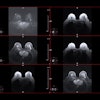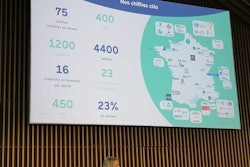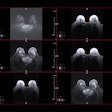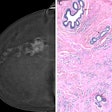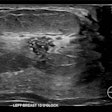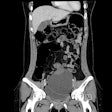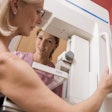Radiologists have a moral and social responsibility to better organize the "generational transition" and to "pass on the baton" to younger colleagues in acceptable, balanced conditions that are not "sacrificed on the altar of finance" through practice consolidation, a senior French radiologist has urged.
"The challenge of generational transition is a major one. It was happening five years ago, and it is still happening now," noted Dr. Laurent Verzaux, general director of VIDI, a network of over 1,000 independent radiologists established in 2017.
This transition process requires radiologists to invest in and mutualize new technology and tools, even though this is difficult to do in the current context of restricted national spending on health. He pointed to the irony of how the retiring generation who fought for new techniques and an increase in trainee places, are now doing a disservice to the younger generation.
Younger colleagues have duly embraced interventional and AI tools, while their elders sell out to the "sirens of money," Verzaux told AuntMinnieEurope.com. "Tomorrow, they will no longer be managers of the structures in which they work, but merely like salaried employees -- at best minority shareholders in companies whose objectives are profitability and short-term return on investment will take precedence over the medical service rendered."
The biology sector has already succumbed to the same trap with a deterioration in services provided, he continued. The situation has prompted VIDI to call on its members to invest in consolidation to prevent radiology from going down the same route.
JFR 2023 sessions
Significantly, the issue of investment groups buying private radiology practices as older experts retire will take center stage at the national congress of radiology, Journées Francophones de Radiologie (JFR) 2023. While the phenomenon of takeover by nonspecialist groups is neither new nor confined to imaging, many radiologists appear to view the trend as a threat to medical integrity and quality.
Over the weekend, two dedicated sessions at JFR will address the topic of how radiologists can face the challenges of medical governance at a time when the outgoing generation outnumbers the incoming one and practices need heavy investment in new tools to cope with patient demand.
The first session -- "The financialization of radiology: inevitable changes or dangerous demedicalisation?" -- will take place from 4.40 pm to 5.30 pm local time on Saturday 14 October. Moderated by Dr. Louis Boyer from Clermont Ferrand and Christophe Lala of MedTech Consulting, the session will focus on the challenges of generational transition and the temptation for those reaching retirement to cash in and check out.
The second hour-long presentation -- "Radiology 2023-2030: what kind of radiology in France in an era of financialization?" -- will take place on Sunday 15 October at 1.30 pm local time. It will include talks by members of the younger generation of France's imaging community, among them, Dr. Aymeric Rouchaud, a pediatric radiologist from Lyon.
Also presenting will be the president of France's national union of interns and young radiologists (UNIR) Dr. Paul-Gydéon Ritvo, a radiology intern at University Hospital CHU Henri-Mondor, Créteil, and founder of CoRAIL, an association for the defence of independent radiologists.
"Financiers aim to increase the short-term value of a radiology practice in order to sell it on after five to seven years, while radiologists seek to maintain their income and reputation over an entire career," he stated in an interview in May 2023 with docteurimago.fr.
Short-termism risks and specialty governance
In response to this situation, VIDI established Vidi Capital in 2022. A total of 300 of the 1,100 radiologist and radiotherapist members each invested an average of 150,000 euros, raising 45 million euros. Far from the traditional profile of the older independent radiologist, the average age of contributing members is 48 years.
"It seemed only logical and necessary that we radiologists should attempt to buy practices which would otherwise be bought by private equity funds, but meetings with banks to secure finance proved nebulous," said Verzaux. "They wanted to know what we as radiologists had done ourselves to try and buy up practices. The message was that finance required finance."
Furthermore, each investing member has a maximum of five votes, regardless of the amount of the initial investment or reinvestment, which provides a balanced governance within Vidi Capital between new and historical doctors, according to the group. Members must also be actively in practice; if they cease activity, they must resell any shares.
"After the initial fund-raising campaign in August 2022, banks were then more willing to loan money for acquisitions. The drive has enabled Vidi Capital to raise finance to back groups wishing to participate in the consolidation needed to meet the challenges ahead," Verzaux said. "It's obvious that if we don't want to lose ownership of our discipline, radiologists have to invest money themselves and share the risk. If you want to be a project 'leader' then you have to participate financially in the project."
So far, Vidi Capital has bought four groups, and there are 15 more under advanced discussion. In the midterm, plans are in the pipeline for another fundraising drive among VIDI members in 2024. While other radiology groups in Europe are consolidating in a similar way, Verzaux could not vouch for their transparency in terms of imposing a ceiling on voting rights, and the requirement to resell shares on cessation of activity.




